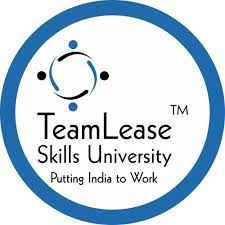A skill is worth more than a degree on paper

The value of something is shown by demand: 23 lakh candidates (including 2.22 lakh engineers and 255 PhD holders) applied for the 368 vacant peon posts in Uttar Pradesh recently. Some of this excess demand represents the above-market wages and job security of government jobs but most of it is just the unemployability of the educated.
The biggest challenges for employability lie in engineering, MBA and MCA degrees. In Maharashtra, only 1.07 lakh students applied for around 1.56 lakh engineering degree seats last year. Similar statistics are seen for many states whether Tamil Nadu, Gujarat, Telangana or Andhra Pradesh. The national regulator of engineering education suggests that capacity will come down from the current 16.7 lakh to about 11 lakh in the near term.
Clearly, the focus has to be on skills than degrees. This is the first year when the top 20 per cent of ITI graduates will get more salaries than the bottom 20 per cent of engineers. But vocational training all over the world is usually for other people’s children and not yours; the Nobel Prize for Economics went to Michael Spence who suggested that employees are able to use their education credentials to get social signalling value. In India, we have amplified this problem by poor strategy, execution and accountability.
Vocational training is a policy orphan because strategy is set by Delhi but delivery systems are in the hand of states. There is a mismatch between what is taught and what employers need; we still teach automobile mechanics on a carburettor but no Indian car is now made with one. We teach engineering drawing using boards when all over the world employers use computer-aided design tools. India’s skill crisis requires solutions that create new connections between the education and employment system to reduce the mismatch between what students learn and what employers want.
One of the best possible routes to learning skills and also getting a job is through the apprenticeship programmes, which have been the path to a career for decades in countries like Austria and Germany.
Setting up a ministry of skills is one part of the solution. Twenty three central ministries are involved in skills but as Socrates said, a slave who has three masters is free. Same is the case with the National Skills Development Corporation (NSDC).
Skilling, as seen internationally, is not the end-of-the-pipe training but something which needs to be integrated into college education. We need to significantly revamp syllabus across the board and have each state set up a Skills University, which prays to one god of the employer.
Skills Universities, which offer academic modularity (mobility between certificates, diplomas and associate degrees), flexible delivery, and a new apprenticeship regime will offer both employability and social signalling value. The National Skills Qualifications Framework is a good start. The government should take the lead in hiring based on skills’ evaluation and create a Skills Mission, which converges all such programmes into one. States need to recognise that labour law reform is a job creation agenda. Lastly, the toxic Right to Education Act – it confuses school building with building schools – has to be amended to become the Right to Learning Act.
With India’s large youth population – 10 lakh children will join the labour force every month for the next 20 years – we need to act firmly, quickly and boldly. Indian education faces the impossible trinity of cost, quality and scale, and we need a number of independent and different solutions. The vocationalisation of higher education is an overdue reform.
Latest Blogs
Manufacturing Industry Growth in India and Hiring Trends
Hiring for Manufacturing Industry in India India's manufacturing sector is on the cusp of a transformative leap, aiming to bolster its GDP contribution to 25%...
Read MoreNavigating Growth and Challenges in the Indian FMCG Sector in India
Technological Advancements and Digital Transformation: Technology is playing a pivotal role in shaping the future of the FMCG brands in India. From digital marketing and...
Read MoreWorking With a Multigenerational Workforce: Benefits and Challenges
Benefits of a multigenerational workforce Each workforce from a different generation has a unique perspective shaped by their experiences, upbringing, and cultural influences; they bring...
Read MoreGrowth of Hospitality Industry in India 2023 and Prospects for 2024
Surging Opportunities and Hiring Trends in 2024 Fueled by a surge in travel, India experienced a remarkable 50% increase in hiring for tourism and hospitality...
Read MoreTelecom Industry in India: The evolving landscape
Inventory in the Telecom Sector: In the telecom sector, inventory encompasses a range of tangible and intangible assets crucial for operations. This includes physical infrastructure...
Read More





